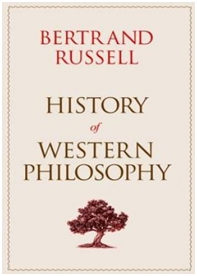I’m not alone. One famous author admitted to me at a book festival party that she had hurled one particularly irritating book across her hotel room.
Why is it so shocking? Because to my book loving friends there is something heinous about treating a book so badly. They may be divided on whether supplementing the printed word with written notes in the margin is acceptable or not (the ditherers use pencil). But they are one in thinking that it is beyond the pale to rip a book in two in order to share with a friend. One super techie admitted to me the other day that he won’t let people borrow paperbacks in case they break the spines.
The reason is that the printed word, when bound between covers (as opposed to newsprint which is only good for wrapping chips in the day after it is published) has much more cultural significance than the just the words on their own.
Why do we own books?
- To read, wrinkly paged, in the bath
- To put on display
- To cross reference teetering piles of them
- As mementos of old love affairs
- To prop up table legs
- To catch sight of unexpectedly on the shelf and be taken back to a wonderful fantasy land
- To carry ostentatiously as we leave a museum
- To write our musings in the margin
- To receive warm and thumbed from a good friend
- To underline and highlight something that seems particularly relevant
- To inhale the delicious odour of dusty bookshops
- To be reminded of an old summer holiday as the sand falls out from between long unopened pages
- …and to throw unceremoniously into the bin when our frustration reaches fever point
So, we value products in many different and unexpected ways.
 My son has recently started to study philosophy at university. He has taken with him his Kindle stuffed full of the works of Hume, Plato and others. But he has also chosen to take with him my father’s copy of Bertrand Russell’s “History of Western Philosophy”. Not a much more portable e-book version, not even the new gift from a benefactor. Oh no, but my dusty old dad’s post-war copy. Just as it had to be the second edition of Fowler’s “Modern English Usage”, he received for Christmas rather than the up to date edition.
My son has recently started to study philosophy at university. He has taken with him his Kindle stuffed full of the works of Hume, Plato and others. But he has also chosen to take with him my father’s copy of Bertrand Russell’s “History of Western Philosophy”. Not a much more portable e-book version, not even the new gift from a benefactor. Oh no, but my dusty old dad’s post-war copy. Just as it had to be the second edition of Fowler’s “Modern English Usage”, he received for Christmas rather than the up to date edition.
The question for this blog is: if the e-book is to replace the printed book, how many of these needs must it meet?
It seems to me that the designers of e-book readers have fallen into the classic product management trap of thinking that the practical reason for needing something (being able to read the words) is the single most important need. It is not.
The e-book does successfully satisfy a fistful of other, previously unmet needs.
- You can take dozens of novels on holiday at no additional cost in size or weight
- They demonstrate(d) a certain level of tech savvy attitude
- Literary agents can carry manuscripts around and read them whenever they need to (if you don’t think this is a need, you’ve never seen a printed book manuscript)
- You can chart your progress through the book as a percentage
- They are much more comfortable to read in bed
- Other people cannot see the books on your bookshelves (hmm maybe those two needs go together…)
- You can change the size of the font, at a stroke removing the need for large type books
- It can have dynamic content such as newspapers which are automatically updated
I think that ultimately the e-book will not replace the book, but will become something else entirely. As manufacturers figure out how to build on the benefits and create entirely new features, which meet yet more unmet needs. Of course this will eat into the paper book market. I get to waste less money on a trashy novel, lose the satisfaction of hurling it into the bin, but gain the benefit of being able to buy a replacement without leaving the comfort of my beach towel. What that final product will be like will depend a lot upon whether manufacturers are attentive to the possibility of some of those emotional needs.
Technology companies, or many of the techie employees of technology companies, can get quite uncomfortable when we starting talking about the emotional needs a product might meet. It is, after all, much easier to measure readability and download speed, than empathy. Unfortunately this means that we tend to ignore all those other, less quantifiable, needs that a product might meet. And, if those needs turn out to be more important to the ultimate consumer of the product, that product is going to fail. There will of course be a post-mortem to understand why a brilliantly researched, ergonomically designed and heavily marketed product failed. It is likely that the technologists will either fail to see, or certainly fail to understand these emotional reasons. Perhaps we need a few poets and artists on our product teams.
Happy reading!



You’re crazy if you believe that e-books (or rather, digital publishing) will not replace traditional paper books. You simply need to looks at how many people publish on scrolls these days to see that – Just as the codex supplanted that, so too will digital publishing usurp the book.
Thanks for the comment Kevin.
I guess what I’m saying is that we value a whole range of attributes of a product and when one product (e-book) replaces another (paper-book) it will not replace all those attributes, and will offer a range of new ones. In effect it becomes a very different product.
What, for example, in our e-book future, will adorn my walls? Interestingly I’ve started to buy, and value, rare early editions of paper books, and not because I want to read them…
BTW, my Kindle is sitting on my bedside table.